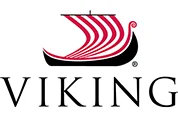 |
| Julia Bloch Mellon |
From a global pandemic to widespread outcries for racial justice, 2020 has forced companies to listen better, reflect on their values and decide what steps they’re willing to take to improve the state of our world.
In a capitalist economy, corporations have extraordinary power to shape society, especially when government falls short. As the maxim teaches us, “with great power comes great responsibility.”
Brand activism around issues from sustainability to women’s financial empowerment has been championed for years. The events of the past six months made clear that brand activism must extend across societal issues, casting company actions and inaction into stark relief. Many companies have been called out for “performative activism,” or professions of support, driven by marketing messaging without the underlying values and actions to match.
COVID-19, racial unrest raise the stakes
During the early days of COVID, the messages that engendered goodwill were examples of brands taking swift action to fill the desperate need for cash, PPE and supplies in virus hotspots. Think of the local distilleries that pivoted from making vodka to donating hand sanitizer; the grocery stores that launched senior hours to allow high-risk populations early access to quarantine supplies; the free flights JetBlue offered to incoming medical workers; and how we laughed and cried at Google’s “Thank you, teachers. Thank you times infinity” ad celebrating front-line heroes while quietly providing educators with free access to G Suite for Education software.
| This article is featured in O'Dwyer's Aug. '20 Financial PR/IR & Professional Services PR Magazine. |
These messages resonated and built loyalty and brand affinity because they were magnifying real, concrete things that brands did. Always actions speak louder than words, especially in times of crisis.
One recent example of the flip side of this coin is the performative activism of well-intentioned brands and individuals on Blackout Tuesday, when black squares clouded Instagram feeds with posts of professed allyship. Corporate brands rushed to publish statements in support of Black Lives Matter as protests following the death of George Floyd swept the country and the world. With a topic as difficult to navigate as racial inequity, both messages and actions may not always perfectly hit the mark.
Many CEOs and corporate brands backed up these statements by listening, learning and taking steps to support the cause. These brands understood that corporate activism is hollow when unaccompanied by concrete, measurable action. In fact, new research found that 73 percent of consumers expect BLM-related statements they receive from brands to be not only empathetic, but also be followed by measurable action.
As marketers, we love words. Words can tell a story, shape a narrative, craft an identity. But words without actions aren’t only meaningless—they’re expensive. They can cost a brand its credibility.
So, how can PR professionals and marketers—the fierce protectors of company reputation—ensure they are providing meaningful guidance to brands during this time?
Understand your customer ethos. In the current climate, many issues, even those seemingly in support of the common good—consider, for example, mask wearing—have become charged with polarized politics. The reality is that as much as today’s consumers expect brands to take action on important societal issues, customers are also prepared to walk away from brands that don’t reflect an ethos they can stand behind. As marketers and PR professionals, part of our job must be evaluating this reputational risk. It will require knowing your brand’s current and prospective customer base, measuring their attitudes on issues and ensuring that business stakeholders have a plan in place to align the future of the business around its future customers. A recent academic study on the effects of corporate activism on financial performance found that activism well-aligned with stakeholder ethos nudged stock price up an average of one percent and sales by 10 percent. In contrast, poorly aligned corporate activism cost stocks an average of a two percent loss and reduced sales by over four percent.
Of course, as triple-bottom-liners have been saying for years: profit isn’t everything. In some cases, companies will choose to take stances that may lead to short-term losses in order to do what they believe is right for both people and the planet. Corporate leadership is only possible by being ahead of the curve.
Take stock of your competitive landscape. By auditing the positioning of competitors and clients—and measuring the fallout of their activist stances—marketing professionals can clearly evaluate how a brand fits within the competitive landscape. With brands across industries wading into political discourse, there will be ample missteps to learn from. On a personal and professional level, humility, self-education and openness to feedback has never been more important.
Train your CEOs to know their power. Recent events have codified the principle that CEO actions can and will impact brand reputation. Many modern customers are unwilling to divorce the values of leaders from the brands they lead. In this setting, a CEO can be an asset and a liability. PR professionals accustomed to working with chief executives know that provocative leaders who say what they think can preserve a brand’s leadership position. Conversely, controversial and politically charged stances can lead to boycotts.
Advocate for action with company leadership. Ultimately, marketers can’t force a brand to take action. However, marketing departments can become an impetus for corporate change by asking challenging questions to pressure-check if values, words and actions truly align: “How have we supported American families and front-line workers during the pandemic?” “What percentage of our Board, C-suite, and senior leaders are people of color?” “What has our company done to reduce our environmental footprint?” Marketers have the power to hold up the looking glass and show brands the gap between corporate values and company reality. The next step is coming to the table with recommended actions to close that gap. One action within PR professionals’ power is to examine the makeup of company spokespeople and push for diverse representation within leadership.
Like it or not, brands have the power to make an immediate impact on the lives of their employees and customers. Backed by data, marketers and communications professionals can be a positive force in this dynamic, encouraging company leadership to not just tell, but show what they stand for.
***
Julia Bloch Mellon is Senior Vice President of Financial Services at Bliss Integrated Communication.


 Edelman handles Viking Holdings, the river and ocean luxury cruise line that plans to raise $1B via an IPO priced in the $21 to $25 per share range.
Edelman handles Viking Holdings, the river and ocean luxury cruise line that plans to raise $1B via an IPO priced in the $21 to $25 per share range. Teneo is handling the initial public offering of CVC Capital Partners, one of Europe’s largest private equity firms with nearly $200B in assets under management.
Teneo is handling the initial public offering of CVC Capital Partners, one of Europe’s largest private equity firms with nearly $200B in assets under management. Brunswick Group represents Endeavor Group Holdings as it agrees to go private via its acquisition by Silver Lake technology investment firm, which is handled by Edelman Smithfield.
Brunswick Group represents Endeavor Group Holdings as it agrees to go private via its acquisition by Silver Lake technology investment firm, which is handled by Edelman Smithfield. Tod Donhauser, a nine-year veteran of Edelman, has joined H/Advisors Abernathy as managing director and head of its San Francisco office.
Tod Donhauser, a nine-year veteran of Edelman, has joined H/Advisors Abernathy as managing director and head of its San Francisco office. Intelligent Group Ltd, a Hong Kong-based financial PR firm, has priced its initial public offering of 1.9M shares at $4, which is the low end of the $4 to $5 range.
Intelligent Group Ltd, a Hong Kong-based financial PR firm, has priced its initial public offering of 1.9M shares at $4, which is the low end of the $4 to $5 range.


 Have a comment? Send it to
Have a comment? Send it to 
No comments have been submitted for this story yet.